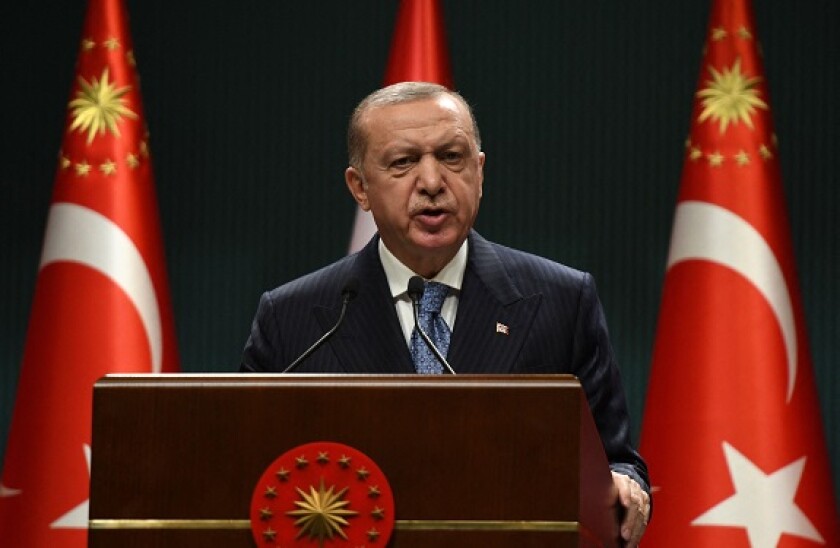"To lose one parent may be regarded as a misfortune; to lose two looks like carelessness."
To lose three — not parents, but central bank chiefs — is normality in Turkey.
With a slight twist, the famous words of Oscar Wilde can be applied almost perfectly to the scenes that unravelled in Turkey over the weekend.
President Recep Tayyip Erdoğan's abrupt sacking on Saturday of central bank chief Naci Ağbal, who had been in post less than five months, shot Turkish assets into freefall.
He was the third governor dismissed in the last two years and the fourth chief to leave the post in five years — staggering, even by emerging market standards.
Central bank governors tend to be very important for emerging markets' credibility with debt investors — they can act as reassuring guardians of economic good sense, even when politicians are erratic or alarming.
Elvira Nabiullina has performed just such a service as chairwoman of the Bank of Russia for nearly eight years.
Erdoğan seems unaware of the value he is throwing away. Certainly, no one in debt markets was surprised when, after Ağbal's ejection, Turkey's hard and local currency bonds plummeted.
The lira tumbled, reversing gains made in recent weeks when investors had begun to believe Turkey was returning to orthodox monetary policy, culminating in Ağbal’s much-cheered 200bp rate hike last Thursday.
It was designed to shore up the lira and Turkish assets in the face of rising US interest rates, which tend to suck money away from emerging markets.
But as GlobalCapital pointed out last week, volatility is never far away from Turkey.
Sure enough, Erdoğan has once again chosen populism over monetary prudence.
This spectacle should remind investors that Erdoğan, who once famously called interest rates “the mother and father of all evil”, is the ultimate arbiter of monetary policy — not the Central Bank of the Republic of Turkey.
Central bank independence and credibility mean little if governors can be ousted for failing to fall in line with the executive’s ideological views, even when the country is facing one of the largest crises of recent times.
Few other emerging markets, and certainly fewer developed markets, can operate in such a manner and get away with it.
Before Ağbal, who was appointed in November as Turkey’s market saviour, Murat Uysal held the job from July 2019 when his predecessor Murat Çetinkaya was ousted after three years in the role, which market experts say was rooted in Erdoğan's dissatisfaction with his interest rate stance.
This time, investors do not seem to be letting it pass. Turkey's access to the bond market has been temporarily cut off and investors say Erdoğan has made a disastrous decision.
That said, no one can be sure yet what Ağbal’s replacement, Şahap Kavcıoğlu, will do about interest rates. He is a vocal champion of low interest rates.
The former academic and member of parliament tried to calm markets at the weekend by affirming his commitment to using the monetary tools available to achieve a "permanent fall in inflation". Few think he will reverse Ağbal’s hike, though as the last few days have demonstrated, nothing is impossible in Turkey. A reverse hike would be suicidal, some say.
But it is not difficult to guess what the man who wrote just weeks ago in a pro-government newspaper that high interest rates would indirectly lead to higher inflation may do with so much power in his hands.
One thing is certain: Turkey's economic credibility barometer has once again sunk in the eyes of investors. Inflation is likely to keep ballooning, while investors will retreat from this volatile patch of emerging markets, seeking more stable assets elsewhere.

